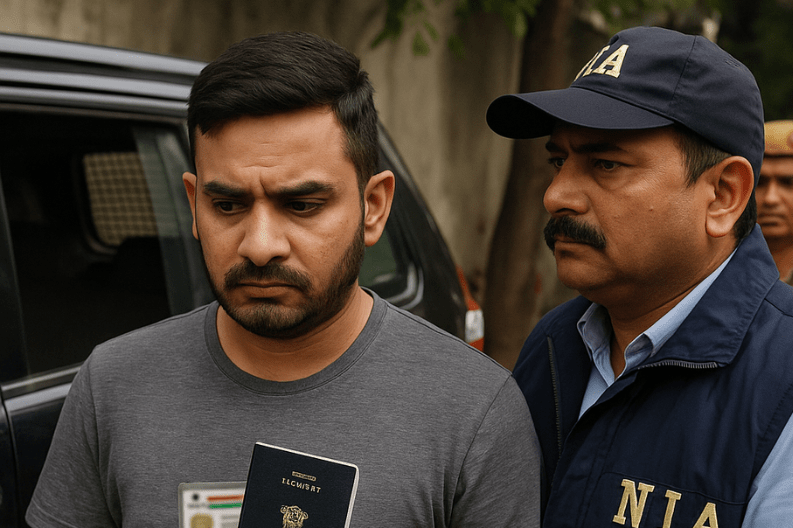The NIA charges man for helping Lawrence Bishnoi Gang members after finding his role in creating fake ID documents for criminals. On Saturday, the National Investigation Agency (NIA) filed a chargesheet against Rahul Sarkar for helping gang members get passports with forged papers. These fake IDs helped them flee India and continue their crimes abroad.
Officials said the Lawrence Bishnoi gang, known for organized crime and terror links, has close ties with Babbar Khalsa International (BKI), a banned extremist group. This link exposes a growing security threat involving criminal and terrorist networks spreading from Punjab to other parts of India.
Rahul Sarkar is the 22nd accused in this ongoing investigation. So far, 18 suspects have been arrested, while four others remain missing. The NIA found that Sarkar prepared fake Aadhaar cards, voter IDs, and bank passbooks for gang members, including Sachin Bishnoi, helping them get passports and escape the country.
Investigators said these forged documents helped criminals avoid capture and continue operating from abroad. One NIA official said Sarkar’s actions kept dangerous offenders active on an international level.
The probe began on August 4, 2022, when the Delhi Police Special Cell filed the first report. Later, the NIA took charge on August 26, 2022. Since then, investigators have uncovered strong links between local gangs and foreign-based terrorist groups. Officials are now tracing money transfers and communication channels used to support their illegal network.
Fake documentation poses a big risk to national security. Criminals use false IDs to hide their identities, get financial benefits, and cross borders easily. These tactics help them in arms smuggling, drug trade, and contract killings, crimes that threaten public safety.
Experts warn that organized gangs like the Lawrence Bishnoi group could disrupt peace if not controlled. Punjab has become a key center for such activity due to its border location and long history of gang violence.
The NIA’s latest move is part of a larger mission to break criminal-terrorist links. The agency is working with the Delhi Police, Punjab Police, and intelligence units to expose these networks. Authorities have also tightened checks on passport applications and fake document creation.
Police officials say better verification systems and modern tools like biometric tracking can reduce identity fraud. The NIA also urges citizens to report any suspicious document activity to help prevent future crimes.
This chargesheet shows India’s growing effort to fight terrorism and organized crime. It also reveals how fake documents allow criminals to act freely across borders.
As the investigation continues, officials expect to identify more people linked to the case. The NIA charges man for helping Lawrence Bishnoi Gang members case highlights how strong law enforcement, public cooperation, and technology can help protect India from criminal and terrorist threats.



